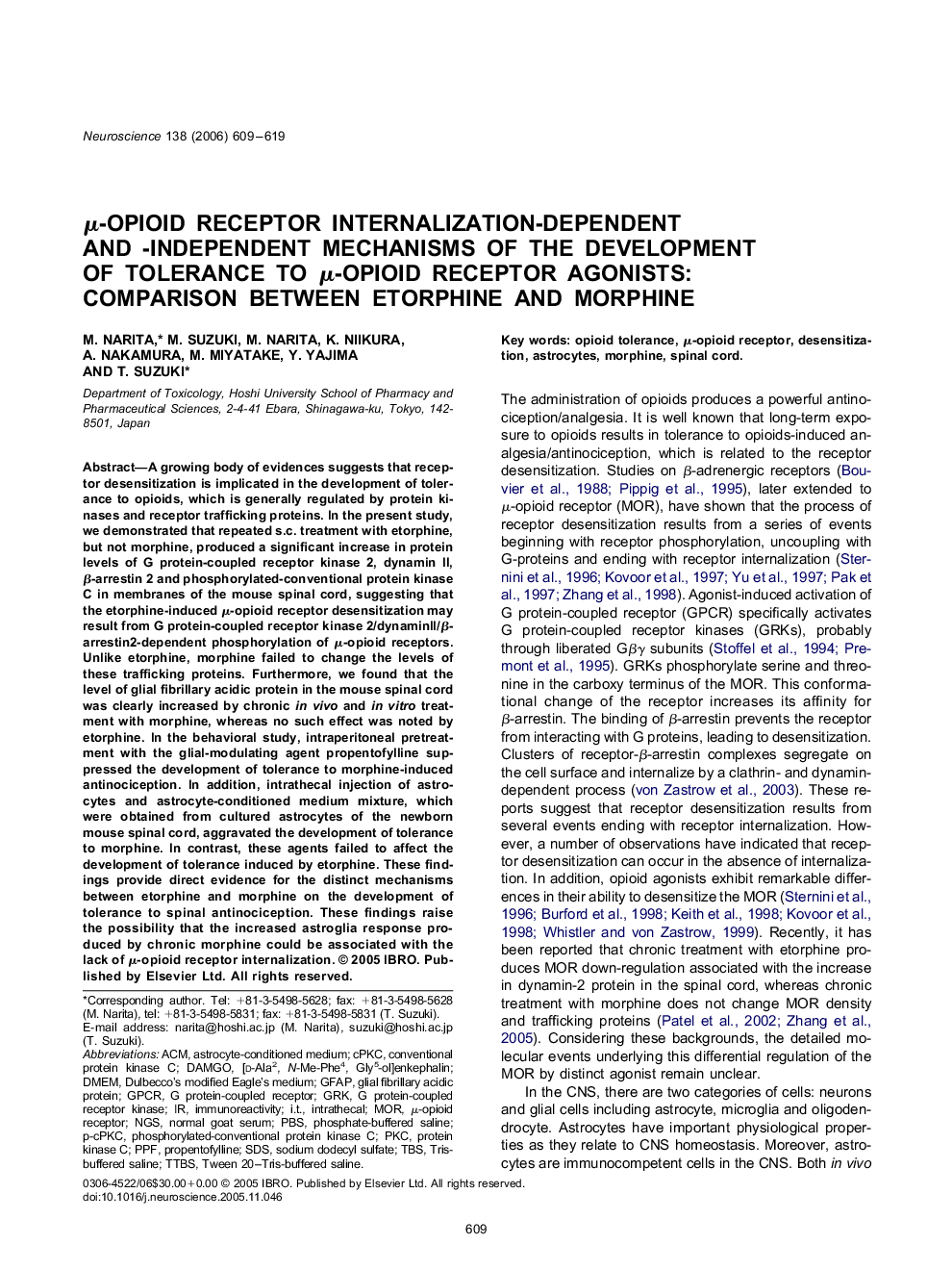| Article ID | Journal | Published Year | Pages | File Type |
|---|---|---|---|---|
| 4342505 | Neuroscience | 2006 | 11 Pages |
A growing body of evidences suggests that receptor desensitization is implicated in the development of tolerance to opioids, which is generally regulated by protein kinases and receptor trafficking proteins. In the present study, we demonstrated that repeated s.c. treatment with etorphine, but not morphine, produced a significant increase in protein levels of G protein-coupled receptor kinase 2, dynamin II, β-arrestin 2 and phosphorylated-conventional protein kinase C in membranes of the mouse spinal cord, suggesting that the etorphine-induced μ-opioid receptor desensitization may result from G protein-coupled receptor kinase 2/dynaminII/β-arrestin2-dependent phosphorylation of μ-opioid receptors. Unlike etorphine, morphine failed to change the levels of these trafficking proteins. Furthermore, we found that the level of glial fibrillary acidic protein in the mouse spinal cord was clearly increased by chronic in vivo and in vitro treatment with morphine, whereas no such effect was noted by etorphine. In the behavioral study, intraperitoneal pretreatment with the glial-modulating agent propentofylline suppressed the development of tolerance to morphine-induced antinociception. In addition, intrathecal injection of astrocytes and astrocyte-conditioned medium mixture, which were obtained from cultured astrocytes of the newborn mouse spinal cord, aggravated the development of tolerance to morphine. In contrast, these agents failed to affect the development of tolerance induced by etorphine. These findings provide direct evidence for the distinct mechanisms between etorphine and morphine on the development of tolerance to spinal antinociception. These findings raise the possibility that the increased astroglia response produced by chronic morphine could be associated with the lack of μ-opioid receptor internalization.
